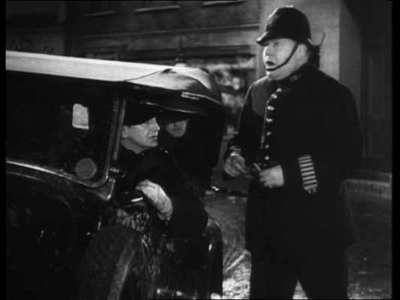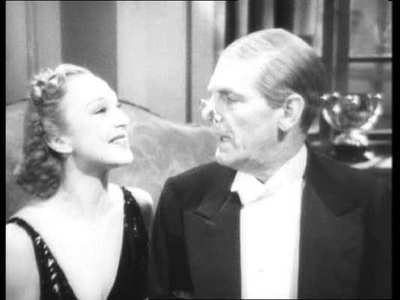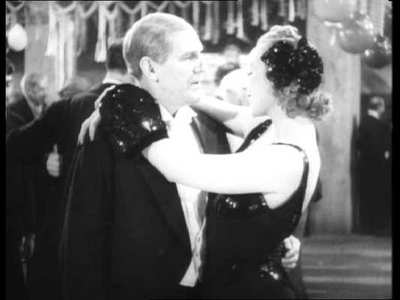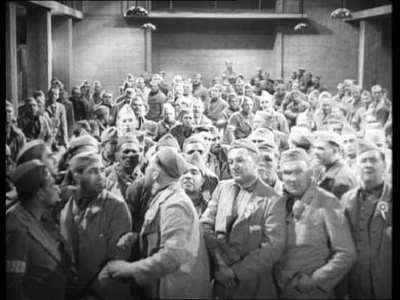Review of Oh Mr Porter / Convict 99
Introduction
For a short, ten year period from 1934 to 1944 British cinema produced one of its great stars, although today he is all but forgotten. This set of discs should redress the balance. Will Hay was a veteran of the music hall and steam radio, a character comedian who specialised in likeable but seedy incompetents - usually headmasters of small and underfunded public schools. In 1914, he had joined Fred Karno`s comedy troupe alongside Charlie Chaplin and Stan Laurel, but there were depths to this comic great. He was also an astronomer of some repute, discovering the great spot on Saturn in 1933. A fully qualified pilot and engineer, he was a sub-lieutenant in the RN Volunteer Reserve during WW2.
"Oh Mr Porter" (1938) is possibly one of his best known movies, after the archetypal "Good Morning Boys"(1937). In this, his sister gets him a job as stationmaster of the halt at Buggleskelly on the Northern Irish border. As with virtually every one of his films he finds himself lumbered with staff in the form of a large youth called Albert (Graham Moffatt) and a single-toothed old barmpot called Harbottle (Moore Marriott). The station at Buggleskelly is, inevitably, run down, decrepit and cursed - by a long-deceased one-eyed miller. The storyline, by Marriott Edgar, Val Guest and JOC Orton from a story by Frank Launder, borrows heavily from "The Ghost Train", the 1931 comedy-thriller written by Arnold Ridley (better known as Godfrey from "Dad`s Army"). The ghosts turn out to be gunrunners taking rifles over the border, but that part of the story is largely superfluous as with all the Will Hay pictures the charm is in the interaction of the lead and his gormless subordinates. "Convict 99" (also 1938) sees our hapless headmaster becoming the governor of a prison. His ideas of prison reform meet with the approval of the inmates and he finds himself dragged into their plans.
There`s something for everyone in these films - good old fashioned clean humour, the occasional risky joke, a little knock-about humour and of course misunderstandings piled upon misunderstandings. Unlike many other British comics, Will Hay never played the sympathy card, as he never played the victim (as Norman Wisdom did). His character was a slightly seedy figure of authority, but he was never as pretentious as, say, Capt. Mainwaring. In "Oh Mr Porter" he makes offended clucking noises about Harbottle`s liquid lunch, then asks him if it is best bitter and takes a healthy swig.
Both these films predate the so-called "golden" era of British comedy (the Ealing comedies), and in fact the Ealing comedies were simply a more upmarket version of the kinds of things Will Hay was making back in the `thirties. All of the movies in this Carlton collection were originally produced by Gainsborough Pictures, an independent production house which ultimately merged with Rank.

Video
Presented in the original 1.33:1 of the era, these movies have suffered from age - not in the humour as much of that has not dated at all, but in the preservation of the movies. Contrast is high and blacks aren`t quite as opaque as they could be. There is a fair amount of print damage and general wear and tear, but considering these films are collecting their old age pension they`re doing pretty well. Collectors will overlook the shortcomings in the image to collect these classics of British cinema, and I`m sure the simply curious will marvel at the glimpse these films provide of an inter-war world.

Audio
Dolby 2.0 representation of the original mono Westrex soundtrack. These movies predated any kind of clever sound trickery, so all you get here is the typical, fuzzy, high-end soundtrack of an Old Movie. Mind you, I`ve heard worse from a modern print that`s been through a projector a couple of dozen times.

Features
Sorry, just a set of subtitles, but that`s an improvement on the past.

Conclusion
Modern comics would be advised to try watching some of these old movies and reining in the smug self-satisfaction. Old stagers like Will Hay could teach a lot of them about comic timing, material and the relationship with the audience. Will Hay was never handed a tv contract after a quick turn at the Edinburgh festival - he earned his place in the music hall and on radio before moving into films. He`ll have been familiar with the sound of his own footsteps on the stage of the Glasgow Empire (the comics` graveyard). He was a genuine comic legend.
Your Opinions and Comments
Be the first to post a comment!